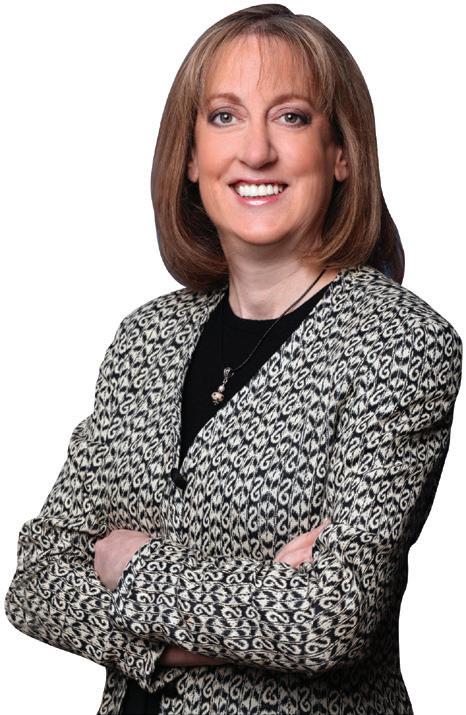
3 minute read
4 Ways to Save the World” — MBA for Executives Create the Future
4WAYS TO SAVE THE WORLD
Designed to enhance the students’ leadership skills, the final residency of the MBA for Executives program challenged the 57 members of the MBA for Executives Class of 2011 to create a future of new opportunities to help resolve some of today’s vexing societal problems on a local, national and global scale.
“What’s unique about the MBA for Executives format is that students have the opportunity to discuss with their professors and classmates the challenges they confront every day at work and what they are seeing in the world,” said Paul Simko, associate dean of Darden’s MBA for Executives program. “The students can go back to the workplace and to their lives with fresh ideas, information and approaches that can make an immediate difference.”
In November 2010, the executives received a questionnaire asking, “What are the three to five ‘things’ in the world today (upon which you can have an influence) that you consider real gaps, real anomalies and real discontinuities?”
The data revealed a group of professionals who care deeply about society and the planet and are determined to help solve the world’s persistent, vexing problems.
“The future will be shaped by entrepreneurially thinking people who create new solutions to fill the gaps, to address the anomalies and to respond to discontinuities,” said Darden Professor Sherwood Frey, who led the course with Michel Schlosser, a Batten Fellow who helped design and deliver the residency.
The students identified an array of topics, including personal health care, globalization, regulation, the impact of information technology and social unhappiness.
Four key problems stood out, each of which was mentioned by a third to a half of the students.
The capstone leadership residency of the MBA for Executives program, dubbed “Creating the Future,” challenged executives with a colossal assignment: Identify a world problem about which you are passionate and commit to changing things for the better.
by Carlos Santos
1. A lack of sustainability: the need
for better harmony between economics and nature to ensure resources for future generations 2. Corporate glitches: the frustration of corporate inefficiencies, the failure to stop unethical behavior, and unmotivated, unsatisfied and unhappy employees 3. Education: the systemic failure of the U.S. educational system, including rampant financial illiteracy among the young and the poor 4. Inequality/poverty: inadequate liv-
ing conditions for people around the world, including in America, and inefficient mechanisms for redistributing wealth
To fully understand the terrain defined by each issue, the class engaged in a process of “collective investigation” from December 2010 to April 2011. Using a specially designed “Creating the Future” website, developed in a Web 2.0 environment, the executives developed a deeper understanding of their areas of concern through collaborative research and discussion and by asking key questions: What are the genuine issues at stake? What are the symptoms of the problem? What are the root causes? Why will my initiative achieve its intended effect?
In white papers, the executives outlined a strategy to guide their actions. On the final day of the course, with graduation just days away, many members of the class committed to begin taking real steps to make a difference.
For example, Rutuja Pathare (pictured above, center), a rehabilitation program manager at Cameron Glen Health & Rehab Center, a skilled nursing facility in Reston, Virginia, committed to providing more “patient-centered” experiences.
“Our patients come to us from the hospital after a life-altering event like a stroke or a heart attack or after major surgery,’’ said Pathare. “It may seem simple and basic, but the patient’s opinion is often the missing factor in health care. I have started talking to patients more about their personal goals for therapy. Luckily, the company I work for is very supportive of this; its motto is ‘Your therapy, your way.’”
Other students set out to improve financial literacy among the disadvantaged and to encourage work-life balance in their organizations.
Said Frey, “We look forward to witnessing the fruits of these leaders’ efforts in the months and years ahead.”








